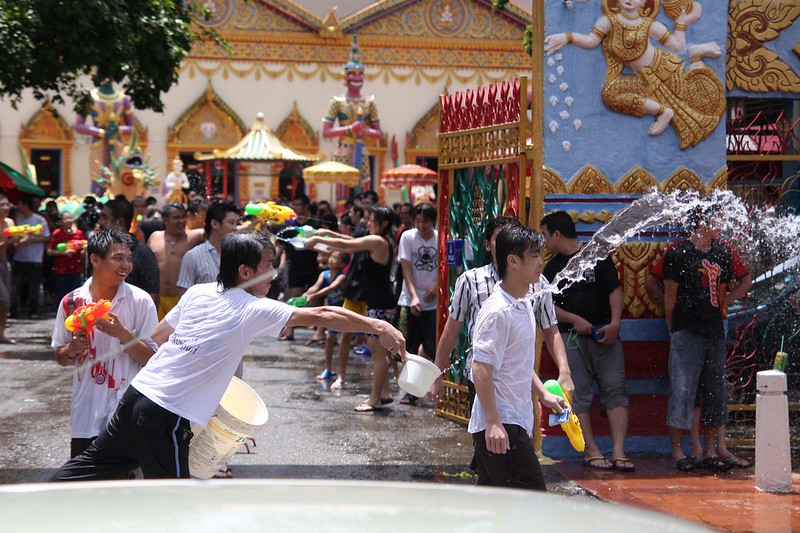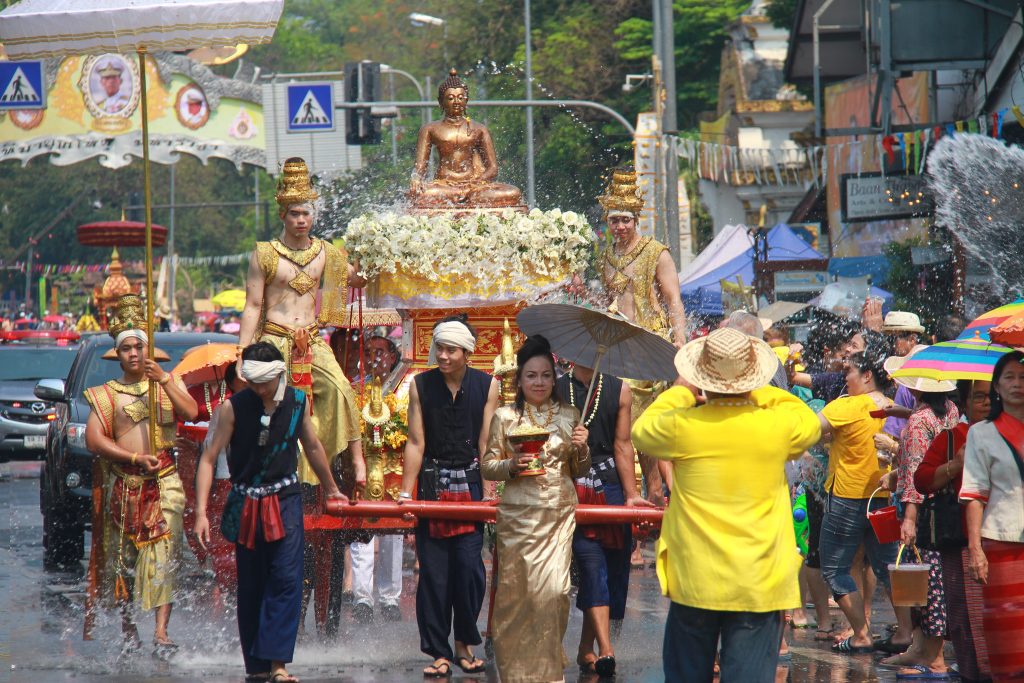
Follow Us
Subscribe to Events and Festivals BlogThe Songkran Festival, also known as the Thai New Year, is a vibrant and joyous celebration deeply rooted in Thai culture and tradition. Held annually from April 13th to 15th, this auspicious occasion marks the beginning of the traditional Thai solar calendar. It is a time of renewal, purification, and the welcoming of fresh beginnings. Throughout Thailand, streets come alive with spirited water fights, elaborate parades, and colourful ceremonies that pay homage to Buddhism and Thai customs.

Songkran Festival – Image via Flickr
The Festival and Symbolism
The term “Songkran” in Thai signifies ‘to move’ or ‘movement’ and the Songkran Festival is determined by the transition of the sun from one zodiac position, Pisces, to another position, Aries. Also referred to as the Water Splashing Festival, it holds significance as the Thai New Year celebration. In Buddhism, water symbolizes renewal, with devotees splashing water on Buddha statues for good fortune, while younger generations honour their elders by bathing their hands in return for blessings.
Origins and Timing
The Songkran Festival is an annual celebration observed from April 13th to April 15th. Commencing with an official opening ceremony on April 13th in major cities across Thailand, the festival heralds the beginning of festivities. While traditionally spanning three days, the holiday’s duration extends in various regions. This timing traces back to the migration of the Thai people from southern China to Thailand circa 200 BC. Originally following a lunar calendar, they adjusted their New Year to coincide with April, marking the conclusion of the dry season, as they settled into the climate of Central Thailand.
The Three Days of Songkran
During the Songkran Festival, April 13th marks Song Nam Phra (‘Pouring Water on Monks’) Day, featuring Buddha image processions and spirited water fights. April 14th, also called Wan Nao, commemorates the old Thai New Year’s Eve and serves as National Family Day, emphasizing family bonding. Finally, April 15th, Wan Payawan (‘Bathing Buddha’) Day, signifies the start of the New Year with widespread festivities including continuous water battles, concerts, street food, and various celebrations across the nation.
Traditional Activities during the festival

Songkran festival – Image via Flickr
During the Songkran Festival, numerous traditional activities take place. Water splashing, a beloved tradition, offers respite from the April heat, with streets transforming into lively arenas for playful water fights using pipes, buckets, and water guns, welcoming both locals and foreigners. Cleaning rituals symbolize renewal, as homes, temples, and public spaces are tidied to welcome the New Year, around every part, no matter if it’s a Sukhumvit hotel like the well-known Travelodge Sukhumvit 11, or a restaurant corner.











